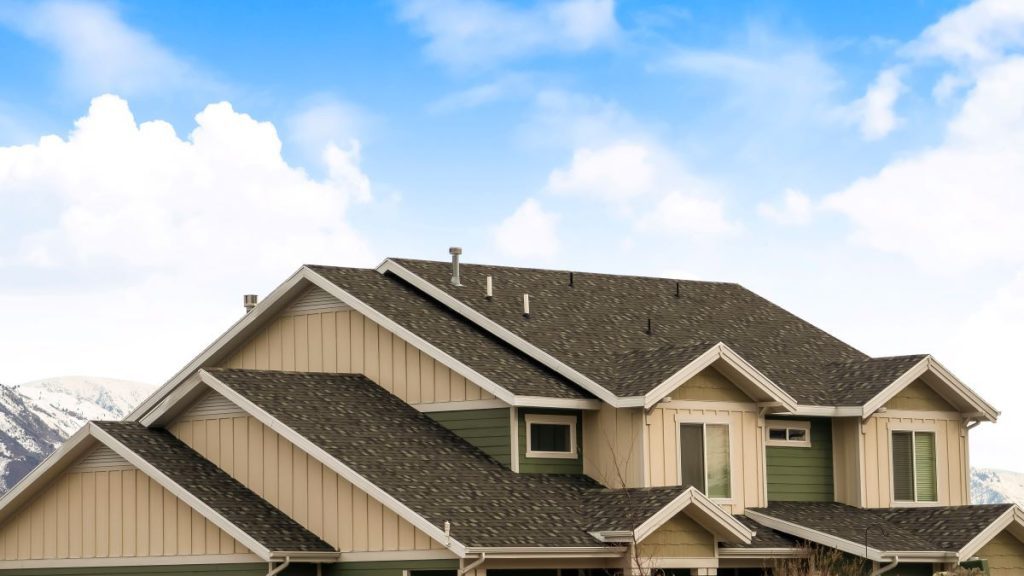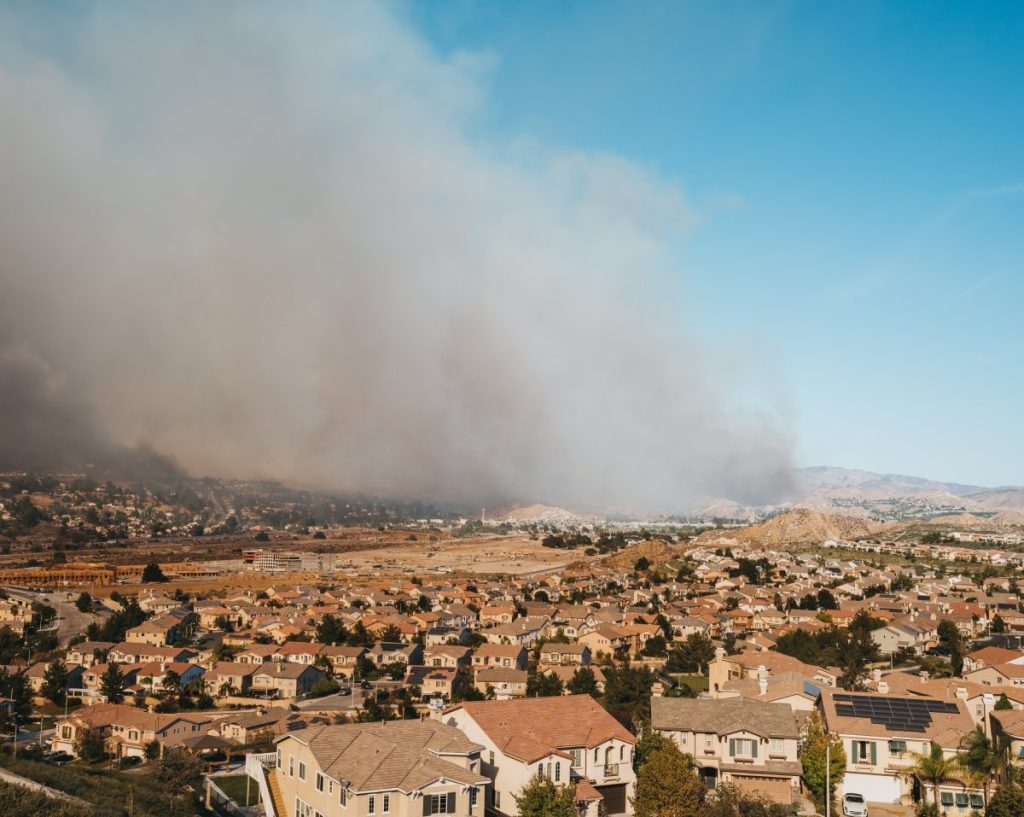The market for homeowners insurance in California has become tighter, more expensive, and more precarious in recent years, as wildfires and other natural disasters have prompted major insurers to raise their rates, withdraw from the market altogether, or unexpectedly cancel or non-renew policies for homeowners.
This blog considers the role that roofs—and, in particular, roof decking—play in insurers’ decisions to cancel homeowners’ policies and what recourse you have under California law (as well as in other states) if you find out your policy is being cancelled or is under threat of cancellation.
Why Are Insurance Companies Cancelling Policies in California?
The rising rate of wildfires and other natural disasters, combined with growing reconstruction costs, has led major insurance companies to significantly scale back the amount of business they do in California. Seven of the 12 largest residential insurance companies in the state have either reduced or terminated existing homeowners insurance policies or ceased selling new policies in California within the last three years. This has led more homeowners than ever before to turn to the California FAIR Plan, the state’s insurer of last resort.
Can a Home Insurance Company Make You Replace Your Roof?
Yes, an insurance company can require you to replace your roof as a condition of your home insurance policy. The condition of a home’s roof is integral to the overall structural integrity of the rest of the house. It’s not uncommon for insurers to require roof repairs or a full roof replacement as a condition of renewal for a homeowners insurance policy if the roof has been damaged or if it’s nearing the end of its lifespan. This is especially true for older roofs, which are more susceptible to wear and tear, roof leaks, and hail or wind damage.
However, in California, there has been a significant recent increase in the number of homeowners reporting that their insurance companies have either threatened to cancel or refused to renew their policies due to the poor condition of their roofs. This places homeowners in the position of having to make costly repairs or find another insurer quickly.
How Old Can a Roof Be Before an Insurance Company Claims It’s Too Old?
While different roofing materials have varying lifespans, most insurance companies do not cover standard asphalt shingle roofs that are more than 20 years old. However, this doesn’t mean your insurer will automatically drop you once your roof hits that age. As your roof ages, insurers may respond by:
- Increasing Your Premiums: An older roof is often viewed as a higher risk, which can result in higher homeowners insurance premiums.
- Reducing Your Coverage: For older roofs, some policies might shift from Replacement Cost Value (RCV) to Actual Cash Value (ACV). This means the insurance payout for roof damage will account for depreciation, leaving you with a larger out-of-pocket expense for a new roof.
- Requiring an Inspection: The insurance company may send an inspector to assess the roof’s condition before renewing the policy.
- Refusing to Renew Your Policy: If the roof is in poor condition or exceeds the insurer’s age limit, they may refuse to renew your homeowners insurance policy unless a full roof replacement is completed.
State-by-State and Insurer-Specific Roof Age Limits
Roof age requirements can vary significantly depending on the state and the specific insurance company. Below is an overview of some notable examples, including credible sources to provide clarity and assurance.
Florida: Following recent legislative updates, insurers are generally prohibited from refusing to issue or renew a homeowners insurance policy due to a roof’s age if it is less than 15 years old. For roofs that are 15 years or older, insurers must allow homeowners the opportunity to obtain an inspection by a licensed inspector at their own expense. If the inspection determines the roof has at least five years of useful life remaining, coverage cannot be denied based on the roof’s age.
Texas and Other Hail-Prone States: States prone to frequent hailstorms, such as Texas, often face stricter homeowners insurance guidelines. Insurers such as Allstate and State Farm may offer ACV-only roof coverage endorsements for roofs that are more than 10 years old. Under these endorsements, insurers compensate policyholders for the depreciated value of the roof after damage, rather than providing the full replacement cost coverage for the roof.
California: Insurers like Farmers Insurance often maintain internal policies regarding types of roofs that are older. These guidelines may require the inspection of roofs that are over 15–20 years old before renewal. If significant wear or risk is identified, the policy may not be renewed unless repairs or replacement are performed. Though specific guidelines vary by company, California homeowners should routinely confirm details with their insurance provider.
As these examples show, homeowners insurance roof requirements can differ widely by location and insurer. It’s essential to regularly review your policy and speak with your insurance agent to stay informed of any specific requirements or updates that may affect your coverage.
What Is Roof Decking?
Underneath the shingles of a roof is the load-bearing structure, often made of plywood, called the “deck,” which provides a solid base for the shingles and other roofing components. When insurers determine the condition of your roof, the age and condition of the roof deck are among the elements they will consider.
The roof deck is a crucial component of an overall roof assembly and must be taken into account when estimating the full cost to replace a hail-damaged roof system. The National Roofing Contractors Association (“NRCA”) is the industry standard for technical assistance in roofing. The NRCA Roofing Manual: Architectural Metal Flashing, Condensation Control and Reroofing—2010, consists of three primary sections. Chapter Four of the Reroofing section, labeled “Roof Decks for Reroofing,” provides that:
- A deck, as part of a roof assembly, must provide structural support and serve as the substrate for the roof assembly.
- A roofing contractor must ensure that a deck’s surface condition is suitable for the application of new roofing materials, including shingles.
- Before applying new roofing materials, the deck should be inspected to determine that it is smooth, straight, and free of irregularities, such as significant humps or depressions.
- If the deck is damaged to the point where it is unsuitable for the application of new roofing materials, it needs to be replaced before applying these new materials.
When Can an Insurance Company Cancel Your Policy in California?
According to the California Department of Insurance’s Residential Insurance Handbook, “After a residential policy has been in effect for sixty days, the insurance company can only cancel a policy for reasons specified by law, which include: nonpayment of premium, fraud, material misrepresentation, or physical changes in the insured property that increase any hazard insured against.”
There are also restrictions on the notice of cancellation or nonrenewal that the insurance company must give you. “The company must mail or deliver a notice of cancellation to you at your last known address at least 20 days prior to the effective date of cancellation, and 10 days for nonpayment of premium or fraud.”
In the case of nonrenewal, “a written notice of nonrenewal must be forwarded to you at least 75 days before the expiration date. If the company fails to give you the proper notice required by law, your existing policy, with no change in its terms and conditions, will remain in effect for 75 days from the date the notice is sent.”
Can You Fight An Insurance Cancellation?
If your insurance policy is cancelled in a manner that violates the stipulations mentioned above, or if you otherwise think that your insurance company has dealt with you in bad faith, there are several different avenues to pursue.
First, you can contact your agent for more information about why the policy is being canceled, or file an appeal with the insurance company. You could also file a complaint with the California Department of Insurance.
Seeking the assistance of an insurance law firm like Merlin Law Group can help you explore your legal options. In addition to suing, an attorney can help you appeal a decision or negotiate with your insurer.
Further Resources on Insurance Coverage Law
Navigating the complexities of insurance claims can feel overwhelming. Whether you’re facing unpaid claims or simply filing for the first time, our eBooks equip you with the crucial information you need to advocate for yourself with confidence.
- Filing A Property Insurance Claim
- Insurance Company Response Time
- What To Do When You Have a Denied/Underpaid Claim
- Wildfire Claims
- Flood Claims Handbook
- More Information on Hurricane Deductible and Policy Limits
- Condominium Hurricane Preparedness
Why Merlin?
Are you fighting an insurance company that’s delaying, denying, or underpaying your claim? With 40 years in practice and over $2 billion in recovered claims, the team at Merlin Law Group stands by your side to ensure you can face any insurance challenge with confidence. Contact us today for a consultation, or read more about how we act as your trusted advocate.
FAQs about Roof Replacement
Will Homeowners Insurance Cover a New Roof?
Homeowners insurance will cover a new roof if the damage is caused by a covered peril, such as a fire, windstorm, or hail. Most homeowners insurance policies do not cover roof replacement caused by general wear and tear, neglect, or lack of maintenance.
What Kind of Roof Damage Does Homeowners Insurance Cover?
Homeowners insurance typically covers types of damage from sudden, accidental events. Common examples include:
- Wind and hail damage: Damage to shingles, gutters, and flashing from a storm.
- Fallen trees: If a fallen tree lands on your roof, the cost of repairs is usually covered.
- Fire: Damage from a house fire.
Standard exclusions typically include damage from floods, earthquakes (unless a separate endorsement is purchased), and damage caused by pests.
Is It Worth Claiming Roof Damage on Insurance?
Deciding whether to file a roof claim depends on two main factors: the cost of repairs and your policy’s deductible. If the cost of the roof repairs is only slightly more than your deductible, you may want to pay out-of-pocket to avoid a potential increase in your premiums. However, for significant damage, filing a claim is usually the best course of action.
How Do I File an Insurance Claim for Roof Replacement?
The process generally involves these steps:
- Document the damage: Take clear photos and videos of the roof damage to provide a detailed record.
- Get a professional inspection: Contact a reputable roofing company to assess the extent of the damage and provide an estimate for the cost of repairs.
- Contact your insurance company: Notify your insurance agent to start the roof claim process.
- Schedule the adjuster’s visit: Your insurance company will send an adjuster to inspect the damage. It’s a good idea to have your roofer present during this inspection.
- Review the settlement offer: The insurer will provide a settlement detailing the payout. If it’s an ACV policy, the payout will be the depreciated value. If it’s an RCV policy, you may receive an initial check for the ACV and a second check for the remaining amount after you’ve completed the roof replacement and submitted receipts.
Is There a Way To Get Your Roof Replaced for Free?
Beware of roofing companies that promise a “free roof.” These are often scams. The roofer may offer to waive your deductible, which is a form of insurance fraud. While a covered loss can result in your insurance company paying for the majority of your roof replacement, you will still be responsible for your deductible.




